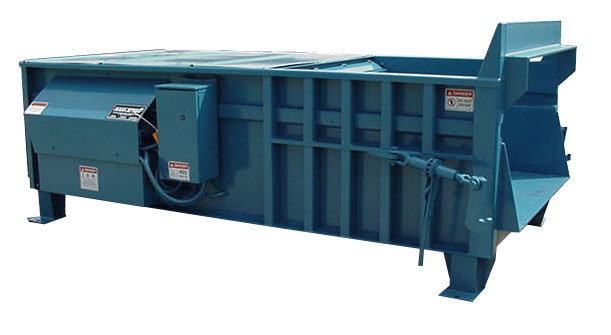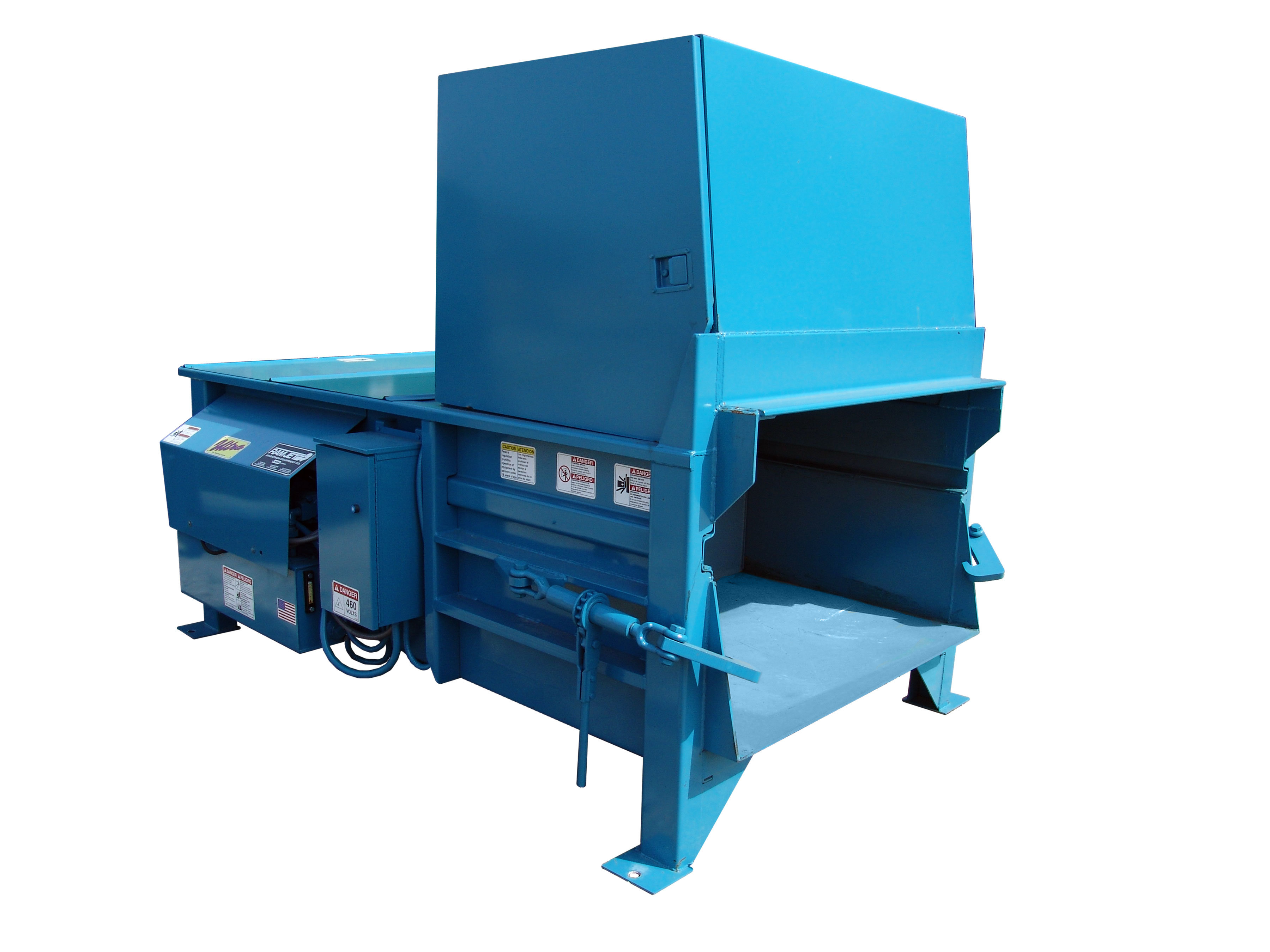The Duty of Waste Equipment in Encouraging Sustainable Waste Disposal Practices
Waste Equipment offers an essential duty ahead of time sustainable garbage disposal methods. It includes a variety of devices developed to boost the performance of waste segregation, handling, and collection. By making use of Equipment such as compactors, shredders, and reusing bins, neighborhoods can substantially minimize their reliance on landfills. The impact of these devices prolongs past functionality. Recognizing their wider effects exposes insights right into how they form environmental obligation and area interaction. What lies ahead in this evolving landscape?
Recognizing Waste Equipment and Its Value
Waste Equipment plays a necessary role in efficient waste management systems. It includes a variety of tools and equipment developed to manage, procedure, and throw away waste products effectively. Recognizing waste Equipment is essential for districts, companies, and companies intending to apply sustainable waste disposal methods - Commercial garbage compaction equipment. Effectively operating waste Equipment not just improves the collection and transportation of waste but likewise decreases ecological influence by ensuring that waste is managed responsibly
The importance of waste Equipment reaches enhancing recycling efforts, decreasing garbage dump usage, and advertising resource healing. Equipment such as compactors, balers, and shredders promote the handling of waste, making it less complicated to divide recyclable materials from general refuse. In addition, developments in waste technology add to the development of even more ecologically friendly services, consequently strengthening the commitment to sustainability. In general, waste Equipment acts as a cornerstone for reliable waste management, fostering a cleaner and much healthier setting for future generations.
Kinds of Waste Equipment for Effective Waste Administration
Effective waste monitoring depends on different types of Equipment designed to resolve certain disposal needs. Amongst these, compactors play a crucial role by reducing the quantity of waste, making transport a lot more efficient. Shredders are crucial for damaging down big items, assisting in much easier handling and disposal. Additionally, balers press recyclable products into workable bales, enhancing storage and transport.
Containers and containers are fundamental for accumulating waste at the source, assuring proper partition and reducing contamination. For unsafe products, specific Equipment, such as drum crushers and watertight containers, is required to assure safety and security and compliance with laws.
Transportation vehicles geared up with hydraulic systems enhance the effectiveness of waste collection and disposal procedures. Each kind of waste Equipment contributes to a streamlined waste monitoring system, advertising sustainability and decreasing environmental influence via effective disposal techniques.
The Role of Recycling Containers in Lasting Practices
Reusing containers play a necessary duty in promoting sustainable techniques by helping with efficient waste splitting up. By supplying marked containers for recyclable products, they encourage individuals to adopt green actions. This basic implementation significantly adds to reducing landfill waste and enhancing recycling prices.
Effective Waste Separation
Proper waste separation plays a vital duty in advertising lasting practices, and recycling bins act as a significant tool in this process. By plainly identifying in between recyclables, compostables, and general waste, these bins facilitate efficient sorting, minimizing contamination and making best use of reusing effectiveness. Their calculated positioning in public and private areas motivates individuals to join liable waste disposal. The usage of color-coded bins helps to streamline the splitting up process, making it intuitive for customers. This business method not only boosts recycling rates however additionally increases awareness about the relevance of waste monitoring. Essentially, reusing containers are fundamental components that sustain efficient waste separation, eventually contributing to an extra sustainable atmosphere and decreasing the general pressure on land fills.
Motivating Eco-Friendly Behavior
Individuals might be inclined to neglect their influence on the atmosphere, the presence of recycling containers significantly affects environmentally friendly actions. These bins serve as aesthetic pointers, motivating people to separate recyclables from basic waste. Their strategic placement in public rooms advertises ease of access, making it less complicated for individuals to adopt lasting techniques. Research studies show that when recycling bins are offered, reusing rates enhance substantially, reflecting a direct connection in between framework and behavior. Furthermore, vibrant signage on these containers educates users concerning what materials can be recycled, lowering contamination rates. By promoting a society of recycling, these containers not just facilitate proper waste administration however additionally influence a cumulative duty towards environmental stewardship, inevitably adding to a much more sustainable future.
Composting Systems: Turning Waste Into Resources
Composting systems function as a crucial device in transforming organic waste right into useful resources, supplying numerous ecological benefits. Different types of composting Equipment accommodate different demands, making the process obtainable to both areas and people. Recognizing the composting procedure is essential for optimizing its performance and advertising lasting waste monitoring techniques.
Advantages of Composting Systems
Numerous neighborhoods are increasingly identifying the numerous advantages of composting systems, which change natural waste into important resources. These systems effectively lower garbage dump waste, thus decreasing greenhouse gas exhausts and preserving natural deposits. By transforming food scraps, lawn waste, and other natural materials right into nutrient-rich garden compost, they enhance dirt health and wellness and fertility, promoting lasting farming practices. Composting aids to maintain moisture in the dirt, minimizing the need for chemical fertilizers and watering. It cultivates biodiversity by supplying a habitat for beneficial microbes and insects. Furthermore, composting educates people about ecological stewardship, motivating a culture of sustainability. Generally, composting systems play a vital function in producing a round economic situation, where waste is reduced, and sources are recycled.
Kinds Of Composting Equipment
A range of composting Equipment is readily available to help with the effective processing of organic waste right into browse around this site beneficial compost. These systems vary from simple backyard garden compost containers to innovative commercial composters. For home use, stemless glass and fixed bins are prominent, permitting for manageable oygenation and blending. Aerated fixed piles use blowers to improve airflow, greatly quickening decomposition. Massive other procedures might utilize in-vessel composters, which regulate temperature and moisture for optimal composting problems. Worm composters, or vermicomposting systems, harness the natural digestion procedures of worms to break down natural matter. Additionally, shredders and chippers aid prepare materials by reducing dimension, advertising faster failure. Each type of Equipment serves particular demands, allowing diverse composting methods that add to sustainable waste administration.
Composting Process Explained
The composting procedure transforms organic waste into nutrient-rich sources with a collection of biological and chemical reactions. Initially, microorganisms such as fungis and microorganisms damage down organic materials, including food scraps and yard waste. This disintegration creates warmth, facilitating further microbial task and increasing the failure procedure. As the compost matures, the temperature level lowers, allowing beneficial organisms to thrive. The existence of oxygen is necessary, promoting aerobic problems that boost microbial performance. Throughout this procedure, carbon-to-nitrogen proportions must be maintained to maximize decay. The end result is humus, a dark, crumbly material abundant in nutrients, which can be utilized to improve soil, assistance plant development, and contribute to lasting agricultural practices.
Cutting-edge Technologies in Waste Collection and Disposal
As cities face enhancing waste quantities and environmental problems, ingenious technologies in waste collection and disposal arise as necessary solutions. Smart waste containers furnished with sensing units track fill levels, maximizing collection paths and lowering fuel intake. These bins can likewise communicate with waste administration systems, helping with prompt pick-ups and reducing overflow issues. Additionally, autonomous cars, including drones and robot systems, are being deployed to enhance operational efficiency in waste collection.
Improvements in arranging innovations, such as artificial intelligence and maker understanding, enable a lot more reliable reusing procedures by rapidly identifying and separating materials. In addition, waste-to-energy technologies convert organic waste into renewable resource, reducing landfill reliance and adding to power sustainability. These developments not only enhance waste administration methods however likewise promote a circular economic climate, consequently fostering a sustainable method to lose disposal. Eventually, the combination of these innovations plays a critical role in attending to metropolitan waste difficulties and improving environmental stewardship.
Community Involvement Via Waste Equipment
While reliable waste monitoring counts my website greatly on sophisticated innovations, area involvement with waste Equipment plays a necessary function in cultivating lasting methods (Commercial garbage compaction equipment). Waste Equipment, such as recycling bins and composting stations, offers not just as practical tools yet likewise as stimulants for area understanding and participation. By positioning these resources in easily accessible locations, municipalities urge people to take an active function in waste reduction and reusing initiatives
Educational campaigns coming with waste Equipment setups can further boost neighborhood involvement, leading citizens on proper disposal approaches and the benefits of sustainable methods. Additionally, neighborhood events that make use of waste Equipment, such as clean-up drives and recycling obstacles, influence collective action and build a sense of duty among area members.

The Future of Waste Administration and Lasting Solutions
Technologies in innovation and changes in social attitudes are forming the future of waste management and lasting remedies. Smart waste monitoring systems, making use of IoT gadgets, are allowing real-time monitoring of waste degrees, optimizing collection courses, and decreasing carbon footprints. These advancements not only enhance efficiency yet also advertise recycling and composting campaigns by offering data-driven understandings.
In addition, the increase of circular economic situation methods encourages companies to reassess item layout, focusing on reusability and recyclability. This shift fosters a society of sustainability, where consumers are increasingly demanding environmentally friendly items.
Neighborhood participation in waste management is becoming progressively crucial, with educational programs empowering individuals to take duty for their waste. As governments worldwide carry out more stringent laws on waste disposal, areas and businesses are triggered to embrace lasting techniques. With each other, these aspects lead the way for a future where waste is lessened, and sources are preserved, guaranteeing a healthier earth.
Regularly Asked Questions

How Can Organizations Benefit Financially From Spending in Waste Equipment?
Investing in waste Equipment can lead to substantial financial advantages for organizations. By enhancing efficiency, lowering disposal expenses, and boosting recycling capacities, companies can decrease operational costs and possibly create earnings through recuperated products.
What Laws Control making use of Waste Equipment in Various Areas?
Various guidelines control waste Equipment usage, differing by area. These include environmental requirements, safety procedures, and operational standards, intended at guaranteeing conformity, promoting public health and wellness, and decreasing ecological effect associated with waste monitoring methods.
How Do I Select the Right Waste Equipment for My Requirements?
Selecting the ideal waste Equipment necessitates reviewing certain waste types, volume, and disposal approaches. Researching available choices, seeking advice from with professionals, and taking into consideration regulative conformity will help in making an informed decision tailored to individual requirements.
What Are the Environmental Effects of Ineffective Waste Equipment?
Ineffective waste Equipment can cause raised emissions, higher energy usage, and better land fill overflow. It commonly results in inappropriate waste segregation, exacerbating pollution and adversely influencing communities, which eventually impedes sustainable waste management efforts.
Exactly How Can Waste Equipment Be Maintained for Optimum Efficiency?
Waste Equipment can be preserved for peak performance through regular inspections, prompt repairs, correct cleansing, and adherence to maker guidelines. This guarantees efficiency, extends Equipment life-span, and lessens environmental impact throughout waste monitoring processes.
Waste Equipment plays a vital function in effective waste monitoring systems. Recognizing waste Equipment is crucial for companies, companies, and municipalities intending to carry out sustainable waste disposal methods. While effective waste monitoring depends greatly on sophisticated technologies, neighborhood engagement with waste Equipment plays a crucial role in cultivating sustainable techniques. Neighborhood involvement in waste monitoring is ending up being increasingly essential, with instructional programs empowering people to take duty for their waste. Selecting the ideal waste Equipment requires evaluating details waste types, quantity, and disposal methods.